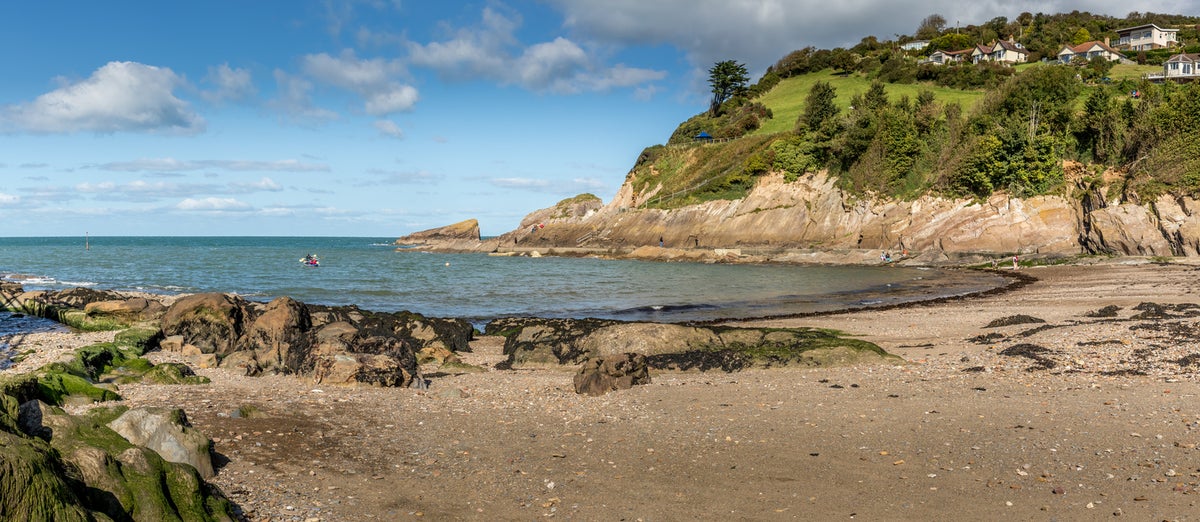Get the free Morning Headlines email for news from our reporters across the world
Sign up to our free Morning Headlines email
Artificial intelligence will be used in south-west England to predict water pollution before it happens.
It is hoped the pilot project in Devon will help to prevent water pollution at the seaside resort of Combe Martin, making it better for swimming.
Around 50 Sensors will be placed in rivers and fields as part of the project, and AI will combine the data with satellite imagery of local land use to predict when the local river system is most vulnerable to pollution.
Farmers will then be asked to hold off on applying fertiliser during times when the river is most vulnerable to pollution.
The project, which is being run by computer systems company CGI and mapping experts Ordnance Survey, is being trialled in the North Devon Biosphere Reserve – a protected area that includes natural habitats as well as farmland and small towns.
Recommended
- AI could mark pupils’ work and act as a ‘personal tutor’, says education minister
- Water warnings mapped: 19 places across the UK you should not swim
- People refusing to pay wastewater bills over anger at sewage pollution
CGI said the AI technology was more than 90% accurate during a test run. The company’s chief sustainability officer Mattie Yeta said the data generated from the sensors will be fed to the AI technology to allow it to “develop the predictive mechanisms to be able to inform where these incidents are occurring and indeed when they will take place.”
Meanwhile, Donna Lyndsay from Ordnance Survey said: “We can start training the model using data to get it understanding that when there was a pollution event – whether it was associated with a particular area? Was there for example a particular rainfall event that washed it all off?”
It comes amid concerns over the quality of the bathing water in Combe Martin. In 2018 and 2019, the resort received a ‘poor’ rating and people were advised not to swim.
“There is very much a fear in the community of what would happen if the bathing water status was rescinded,” said Andy Bell from the North Devon Biosphere Reserve.
“It would impact on the cafes, the restaurants, the B&B’s… people want to come to a clean place to enjoy themselves.”
Yeta said it is hoped the project will be scaled up and rolled out to different parts of the UK.
✕
Subscribe to Independent Premium to bookmark this article
Want to bookmark your favourite articles and stories to read or reference later? Start your Independent Premium subscription today.
SubscribeAlready subscribed? Log in
Popular videos
{{/link}}

